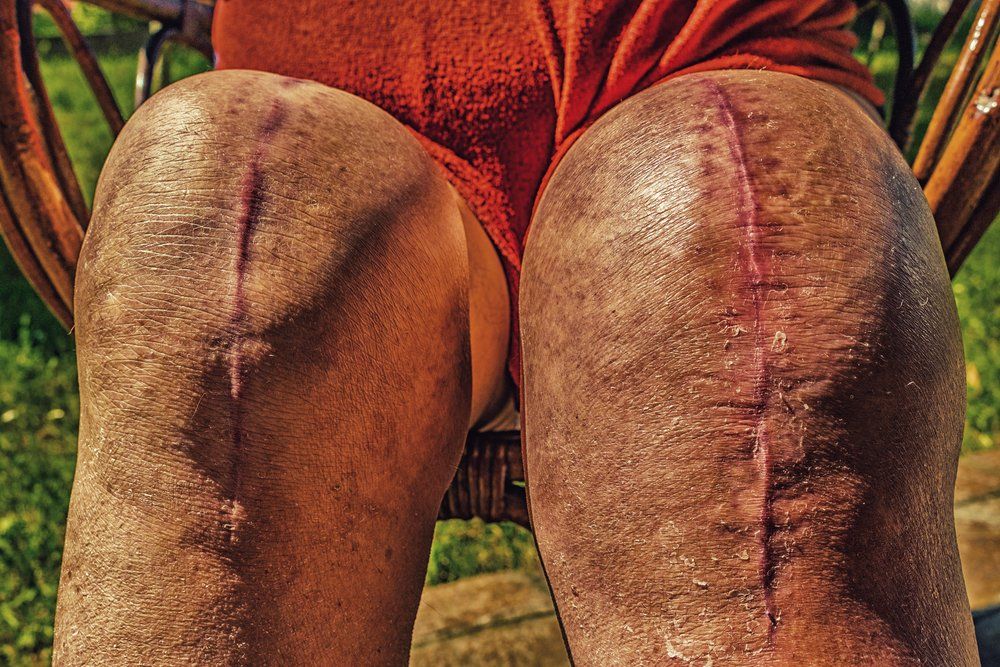Article
How much do your patients know about total knee replacement?
Author(s):
Adding tools with graphic information to conversations about total knee replacement can improve patient understanding of the procedure’s benefits and risks, new research shows.
(Post-op knee replacement ©GoneWithTheWindShutterstock.com)

Adding tools with graphic information to conversations about total knee replacement can improve patient understanding of the procedure’s benefits and risks, new research shows.
According to a study published in Arthritis Care & Research, using visual tools, such as icon arrays, images, and spinners, can change how patients facing total knee replaceme think about it and give them a more positive outlook.
“Decision support at the point-of-care is being increasingly recognized as a vital component of care,” investigators wrote. “Our findings suggest adding graphic information to descriptive statistics strengthens preferences for total knee replacement.”
To determine the impact of visual tools, researchers recruited 648 patients from the online arthritis community CreakyJoints, for a survey. All patients were over age 50. Among respondents, 93 percent were female, 88 percent were white, and 44 percent were college graduates. The most common self-reported, physician-diagnosed arthritis types were osteoarthritis (57 percent), rheumatoid arthritis (12 percent), rheumatoid arthritis and osteoarthritis (25 percent), and psoriatic arthritis (4 percent). Two percent were without concomitant osteoarthritis. None had a hip or knee replacement.
Researchers gave participants numeric information about total knee replaceme patient outcomes to help form their opinions, including details about the number of patients who experience good results (42 out of 50), those who don’t do as well as expected (7 out of 50), and those with serious complications (1 out of 50). Researchers, then, randomized participants into four information formats: numeric only, numeric with an icon array, numeric with a set of 50 images, or numeric with a functional spinner.
Baseline preference for total knee replaceme did not differ across formats.
According to analyses, total knee replaceme preference was higher among the icon array group (LSM +/-SE 7.17 +/-0.10; P=0.0002), images group (LSM +/- SE 7.14 +/- 0.10; P=0.0005), and the spinner group (LSM +/- SE 7.19 +/- 0.10; P=0.0001) than the numeric-only group (LSM +/-SE 6.66 +/- 0.10. Preferences against total knee replaceme were greatest among the numeric-only group (P=0.0376).
Format also affected knowledge about total knee replaceme. Of a possible range of 0-3, the icon array group acquired the most knowledge (2.0 +/- 1.1) compared to other formats - numeric (1.4 +/- 1.2), images (1.4 +/- 1.1), and spinner (1.3 +/- 1.1).
Further research is needed, however, investigators said, to determine how these tools affect the accuracy of patient expectations in clinical practice.
REFERENCE
Fraenkel L, Nowell WB, Stake C, Venkatachalam S, Eyler R, Michel G, Peters E, Impact of Information Presentation Format on Preference for Total Knee Replacement Surgery. Arthritis Care & Research (2019), doi: 10/1002/acr.23605




